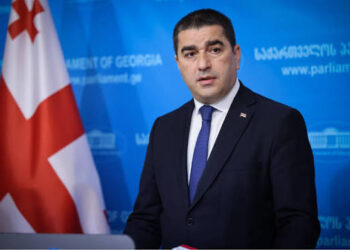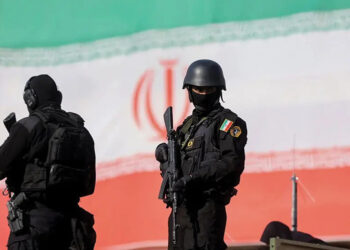So that the discussion is not just for the sake of talking, we will try to form or unite some practical opinions. The word “unification” is not accidental, as we have already expressed one or another opinion in previous articles. It should be noted that different opinions on this issue have also been presented in other authoritative works.
This time, to avoid thematic “tautology” and abstractions, and for the sake of practical concreteness, we will outline some important recommendations in light of current events.
Specific Recommendations
Systemic consultative platform: in the past we have repeatedly talked about the need for a qualitatively new, system-creating format of relations to improve cooperation in the Black Sea region.
In particular, we consider the initiative of the framework document of the Black Sea Declaration as one of the options that would serve the political and economic integration of the countries of the region, including a modern format of consultation and coordination, adapted to the time and needs of new channels of communication.
Such a declaration will emphasize the importance of the Black Sea region for global and regional peace and stability. Along with a number of relevant topics, the declaration will: (1) talk about the partnership of the parties for regional security; (2) express support for the sovereignty and territorial integrity of the countries of the Black Sea region; (3) emphasize the importance of ridding the region of harmful influences and “zones of special interest”; (4) point out the need to mobilize funds for the diversification of regional infrastructure as well as the need for socially and environmentally sustainable projects in the region; (5) discuss the so-called ethnic conflicts; (6) highlight the need for continued cooperation on pressing regional security issues, whether terrorism, illegal migration, or others; (7) outline directions towards regional free trade agreements and blocs.
In addition to the above, the attention of the declarants will additionally and specifically focus on attracting investments to the region. As one of the concrete initiatives we would consider the declaration of a major regional project, for example, the initiation of a “Black Sea Prosperity (Development) Belt”. The project objectives would include mobilization of financial resources for regional infrastructure development, as well as reduction of dependence on certain energy sources, implementation of targeted social and environmental programs, etc.
We would like to add that for the format to be effective, it will be necessary to hold regular summits at the level of the heads of the declaration’s member states, strategic partners and high-level representatives of allies. The main purpose of the regular summits will be to support the independence, sovereignty and territorial integrity of the countries of the region and the realization of other priorities stipulated in the declaration.
“Compensatory models” of security
NATO enlargement remains on the agenda, and so far only at the level of declarants. In fact, there is no practical movement or procedural gidance on the implementation of the declared principle of “open doors”. In this respect, the war in Ukraine has also turned out to be a rather strange event: the realization of the aforementioned principle is sometimes clear and then clouded. Therefore, to date, the foreseeable prospect of the North Atlantic Alliance expanding eastward – into Russia’s “near abroad” – is as unclear as the political outcome of this war itself. However, the processes that have unfolded in the greater Black Sea region cannot adjust to procrastination and require political and legal solutions aimed at the resolution of the issue.
One such solution could be the creation of a mini-lateral (multilateral) defense alliance of the region, a kind of regional “small NATO”, which we have repeatedly proposed. In general, the formation of small defense alliances tailored to the needs of a particular region is a characteristic of the new format of the global security system, and good examples can be found in the Indo-Pacific and Middle East regions. So, the question arises: is it not time to create a region-specific structure tailored to the security interests and challenges of the region of the Black Sea? This initiative would be especially practically useful for those countries (including Georgia) that cannot take advantage now and may not take advantage in the near future of NATO’s well-known Article 5.
We also believe that, in addition to a set of defense measures, the institutional alliance for Black Sea regional security would deepen other areas of cooperation, such as situational threat assessment, intelligence sharing, etc.
In any case, such a systemic solution would help establish a “one flank, one threat, one effort” policy among the region’s like-minded countries and their partners towards regional challenges.
Regional interconnectedness
In today’s world, discussion of economic interconnectedness and the phenomenon of interdependence is an established given. Based on the objectives of this article, it is not possible to discuss this phenomenon in detail. The only thing we can add is that, due to different circumstances, the quality of such links and relations has been rising and falling: at present, as a result of post-pandemic, war and great power competition, such an economic network is in a process of restructuring and searching for a new point of equilibrium.
However, it is better to refer back to our region, for which economic interconnectedness and interdependence are particularly important for preventing military conflicts in the region and achieving relative stability. This phenomenon was originally labeled “peace through trade” and its essence was to meet mutual needs of countries with different political and social structures.
In the greater Black Sea region, such a “need” is more relevant today than ever before. As concrete examples of such “need” of regional interconnectedness and interdependence, two major projects should be considered: the Black Sea Underwater Electricity Cable and the Anaklia Deep Sea Port. The successful realization of the Middle Corridor project with corresponding political and economic dividends for our country and the region will be a continuation of the same approach.
Apart from the direct effect, the implementation of these and other regional connectivity projects is the best response to the destructive actions of the Russian Federation. The fact is that Russian destructiveness is not only manifested in military aggression. It is also aimed at putting the Black Sea region under such pressure that foreign investments will lose any incentive to enter the region. And the disappearance of the region from the investment radar would not only threaten the economic development of the countries concerned; It would throw the region out of a healthy economic structure connecting Europe and Asia, and bring logistical routes under the influence of revisionist regimes. And finally: large and ambitious investments in the infrastructure of the greater Black Sea region will be exactly in line with security in the modern sense, unthinkable without economic self-sufficiency and sustainability.
The Greater Black Sea Region and Georgia
Georgia should not only adapt to the emerging system of regional security of the Black Sea, but also become an indispensable creator of this system. To some, such a formulation may seem bold. We agree that yes, it is bold. Nevertheless, this statement has its justification and explanation: (1) the justification lies in the reasoned ambition that is so necessary for a small country to be competitive, and (2) the explanation is the historical functionality called the political-geographical component of Georgia, and our country is obliged to make a tenfold effort in this regard.
Obviously, we are well aware that it is practically impossible to accomplish this task relying only on our own resources (due to the scarcity of such resources). However, there are several fundamental factors that contribute to the multiplication of our resources at the expense of partners and allies, namely the fact that Georgia: (a) is a pro-European country; (b) has the status of a “partner with enhanced opportunities” of the North Atlantic Alliance in the region and operates within the framework of the renewed NATO-Georgia core package; (3) connects (and will further connect in the future) the West and the East with important transportation and logistics links on its territory; (4) by further strengthening ties with the West, creates an opportunity to better project Western interests in the region, which is a subject of rationally coinciding and reciprocal interests of the country and its allies.
We believe that only with a systematic approach and large-scale thinking can the Georgian state have real claims to establish a place in the desired format of relations in the Black Sea region. And the efforts aimed at this equally pass through the sanity and health of the political process within our country. The time has come to clearly show both to ourselves and to the outside world that we have both the moral right and the practical opportunity to make our own unique contribution to regional security and stability. And for this purpose, a nationwide consensus, the unity of healthy political and public forces and a transition from the “business-oriented” Georgian politics to a practical agenda of national state development are needed more than ever. The sooner, the better.
By Victor Kipiani, Geocase Chairman














